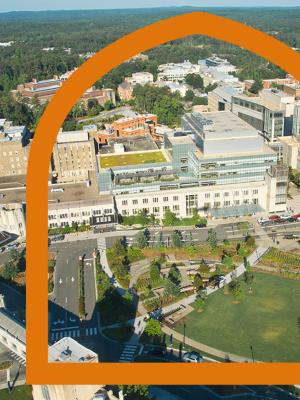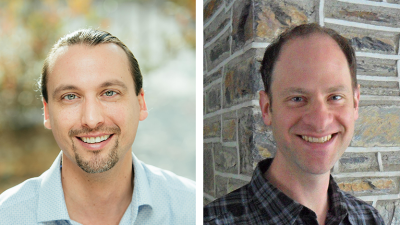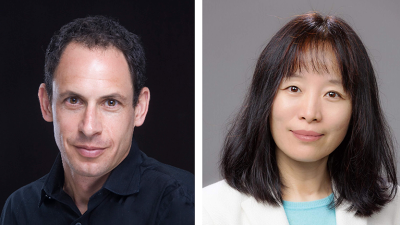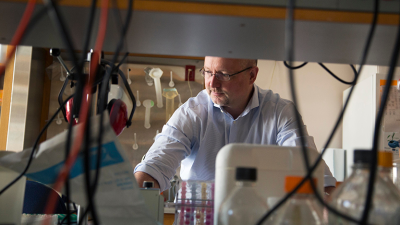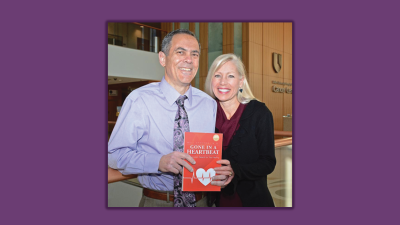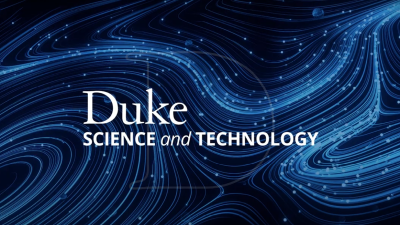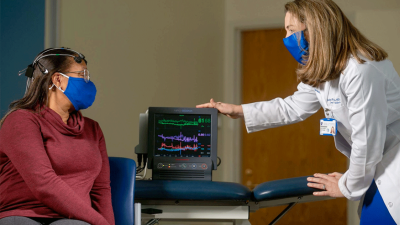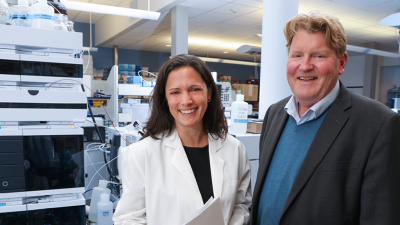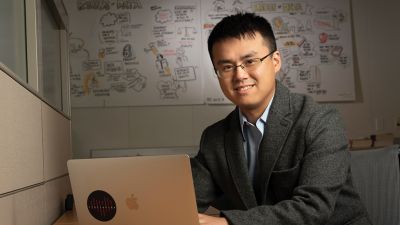
Meet Physicians and Scientists
Collaborating to Find a Cure for Blindness
For patients who find themselves slowly beginning to lose vision, today’s doctors have gene replacement therapy as a treatment option. However, there’s a small window of time when the therapy will work best, meaning if a patient isn’t seen soon enough, vision cannot be restored.
Finding the Meaning of Perception in the Brain
Gifts from generous donors have helped researchers who are working to answer basic questions about the human brain—answers that could lead to important discoveries in disease and improve patient outcomes.
Promising Results of Poliovirus Research Possible Thanks to Philanthropy
In a daring yet successful experiment back in 1995, Matthias Gromeier, MD, discovered that genetic recombination of poliovirus with a distant relative, human rhinovirus type 2, eliminates the disease-causing capacity of poliovirus. Yet, the modified virus retains the ability to infect and damage cancerous cells, owing to their abnormal “wiring,” and—more importantly—provides powerful immune stimulation by inducing host antiviral defenses.
Eliminating Brain Tumors with Immunotoxin
To improve the survival of patients with brain tumors, Vidya Chandramohan, PhD, focuses on developing bacterial toxin-based therapies for glioblastoma.
$2 Million Bay Area Lyme Foundation Grant to Benefit Lyme Disease Research in Honor of Neil L. Spector, MD
For many years, the late Neil L. Spector, MD, who was a leading cancer researcher at Duke Cancer Institute, struggled with Lyme disease. Initially, he was misdiagnosed and when finally treated with antibiotics, some of his symptoms improved but his heart was irreparably damaged due to Lyme carditis, a condition that occurs when Lyme disease bacteria enter the tissues of the heart.
Mathers Foundation Funds a Novel Approach to Understanding Common Lung Diseases
Michael Boyce, PhD, associate professor of biochemistry, never expected to be studying the lungs. He is an expert in glycobiology—the intricate mechanisms behind how sugars attach to proteins, and the role these sugars play in sending signals that influence cell biology, organ function, and more.
Harnessing the Body’s Ability to Heal Itself
What if we could disable the defense mechanisms that enable cancer cells to evade treatment, or even control their genes to prevent them from developing into tumors in the first place? Can we enhance our brain’s ability to forestall damage from Alzheimer’s disease and other neurodegenerative conditions? Is it possible to develop a vaccine for everything?
The Mysterious Case of the $11 Million Benefactor
Drs. Armstrong and Newgard, have devised an innovative, community-based effort focused on children’s health and nutrition to fulfill her wish.
Why Some Cancers Become Resistant to Therapy
David G. Kirsch, MD, PhD, is leading a Duke Cancer Institute study on cancer biology and radiation response. By understanding how cancers develop, how tumors respond to therapy, and how they become resistant to therapy, his team is working to develop new therapies that save lives
Anru Zhang, PhD: Using Data Science to Improve Patient Care
Anru Zhang, PhD, hopes to give physicians another tool to treat disease and improve health – by turning patients’ electronic medical records into a treasure trove of information.
